On the morning of July 17, the Ministry of Education and Training held a professional consultation workshop on some contents guiding the implementation of the Law on Teachers, policies for teachers, educational leaders and school personnel in the new context.
Recommendations from international experts
At the workshop, domestic and international experts shared about the international and domestic context related to shaping the role and policies of teachers, leaders and educational personnel; introduced some findings on teacher policies in the Global Education Monitoring Report 2024, 2025 as well as policy recommendations for Vietnam from a number of in-depth studies.
The contexts and policy recommendations from international and domestic sources will help the standing body drafting documents guiding the implementation of the Law on Teachers of the Ministry as well as local delegates and educational institutions have more multi-dimensional perspectives on domestic and international teacher policies so that they can participate, contribute ideas, criticize, and advise on better teacher policies.
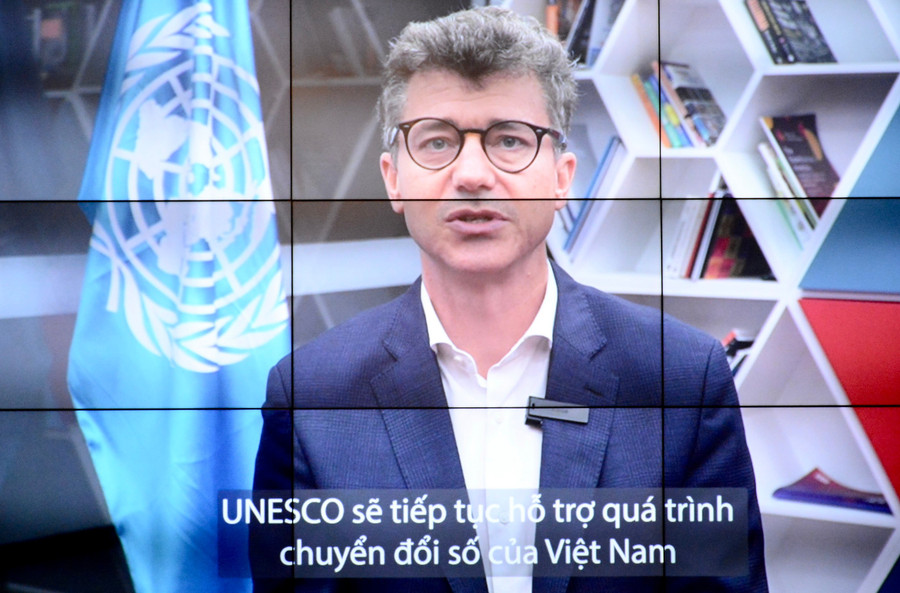
Mr. Jonathan Wallace Baker - UNESCO Representative in Vietnam acknowledged that the newly issued Law on Teachers helps to raise the status of the teaching staff. With the regulation on teachers' salaries being ranked highest in the administrative career salary scale, it clearly affirms that education plays a key role in the development of the country.
“UNESCO highly appreciates Vietnam's comprehensive education reform from tuition exemption, implementing two-session teaching per day..., demonstrating fairness in education” - Mr. Jonathan Wallace Baker noted.
UNESCO has accompanied Vietnam from the early stages of developing teacher policies and is committed to continuing to support Vietnam in promoting gender equality, developing teachers, and building happy schools. Mr. Jonathan Wallace Baker said: In the coming time, UNESCO will continue to support Vietnam in digital transformation, focusing on technology, ensuring concentration.
According to Mr. Jonathan Wallace Baker, we need an integrated data system to support teachers and the entire team, school psychology and medical staff... to address the shortage in human resource needs at localities and in policy planning.
In addition, information technology is used to enhance expertise, improve school management, and promote innovation. Mr. Jonathan Wallace Baker emphasized that the promulgation of the Law on Teachers and the amendment of education laws shows that Vietnam is making a comprehensive commitment to ensure that no individual or child is left behind.
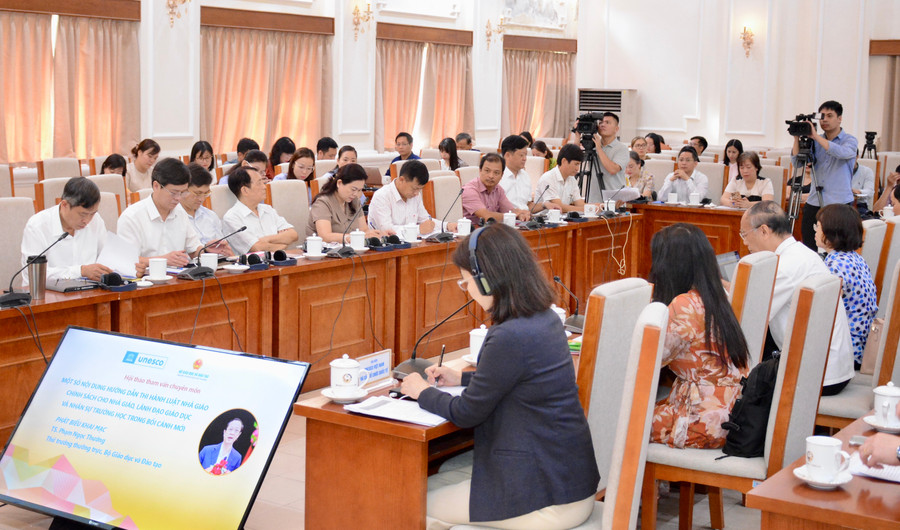
Recommending data collection, analysis and forecasting on teachers in Vietnam, Mr. Nyi Nyi Thaung - representative of UNESCO Thailand said that it is necessary to develop a teacher management information system linked with EMIS, regular professional training and human resource management.
At the same time, expand data disaggregation such as ethnicity, disability, employment status, etc. Leverage digital technology to integrate and visualize data. In addition, use forecasting tools to inform policies on teacher recruitment, retention, and training. Build capacity at the local level to use data for planning and promote cross-sectoral collaboration.
It is necessary to organize the implementation of the Law on Teachers according to decentralization and delegation of authority.
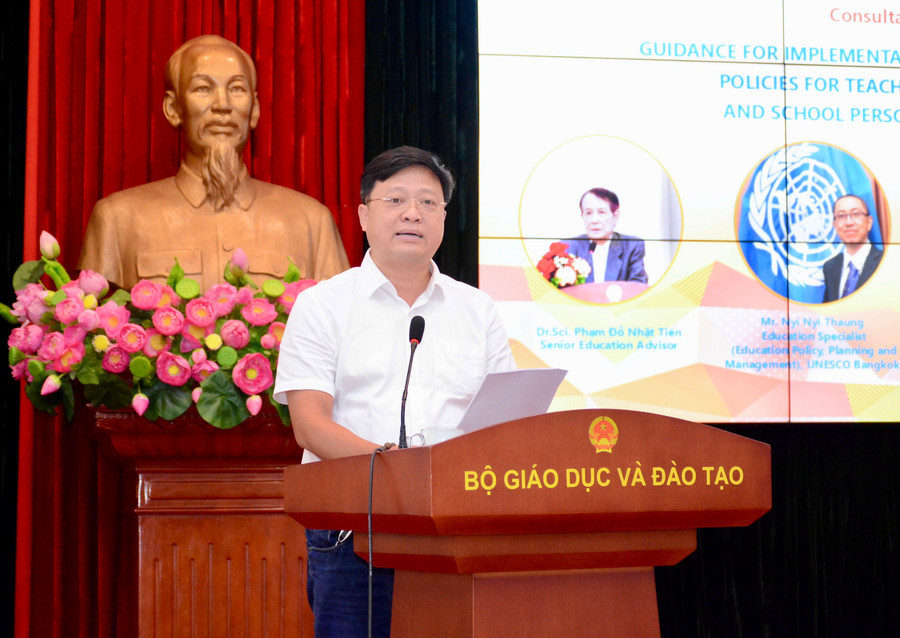
Proposing specific policies to develop the teaching staff, Associate Professor, Dr. Pham Manh Ha - Faculty of Science and Education Technology (Hanoi University of Science and Technology) suggested that it is necessary to stipulate in the Circulars on professional standards for teachers and staff, in which clearly defining the standards on digital competency standards and the ability to apply AI is a mandatory requirement;
In addition, it is necessary to build this training content into regular training programs for all education personnel, including lecturers and support staff.
In addition, Mr. Pham Manh Ha said that it is necessary to build a practical and flexible performance assessment framework, focusing on innovation and practical contributions, instead of relying solely on seniority or administrative indicators.
This framework should be applied uniformly to support staff, in order to create a fair and transparent development roadmap. It is necessary to consider a special promotion mechanism, more flexible for individuals with outstanding achievements, instead of the current rigid regulation of 9 years of rank retention.
Commenting that the Law on Teachers is a breakthrough in perfecting the educational system, Dr. Pham Do Nhat Tien - UNESCO education expert said that in the coming time, it is necessary to organize the implementation of the Law on Teachers according to decentralization and delegation of authority.
At the same time, it is necessary to improve the leadership and organizational capacity of relevant parties in the spirit of creating and developing teachers and educational personnel. In addition, it is necessary to focus on innovating the training and fostering of teachers and educational personnel in the direction of being ready for the future.
Dr. Pham Do Nhat Tien, a scientist, suggested that it is necessary to pilot and gradually expand the happy school model in vocational education and higher education; attract the participation of the private sector, especially in the technology sector; and complete the database of teachers and educational personnel to serve policy making, monitoring and evaluation.
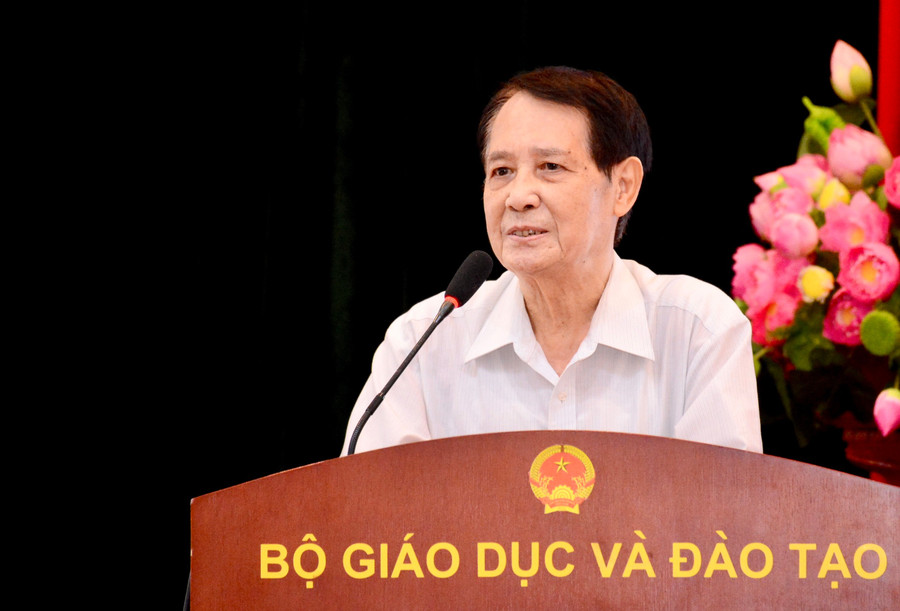
The highest legal basis
Speaking at the workshop, Deputy Minister of Education and Training Pham Ngoc Thuong emphasized that the promulgation of the Law on Teachers is an important condition and the highest legal basis for implementing teacher policies and developing the team.
These are necessary conditions, and the sufficient condition is to issue guiding documents under the law. This process requires effort, intelligence, scientific, practical and systematic survey, research and assessment.
The Deputy Minister emphasized that from now until January 1, 2026, the Law on Teachers will come into effect, and at the same time, those regulations must be implemented synchronously. Accordingly, from now until the end of 2025, it is necessary to simultaneously study and issue 3 Decrees and 12 Circulars guiding the implementation of the Law.
These are important, difficult and complicated documents because they still stipulate specific contents that are already in the law, regulating contents under the authority of the Government, the Prime Minister and ministries. In particular, these documents affect people, with more than 1 team of teachers and affect other legal documents.
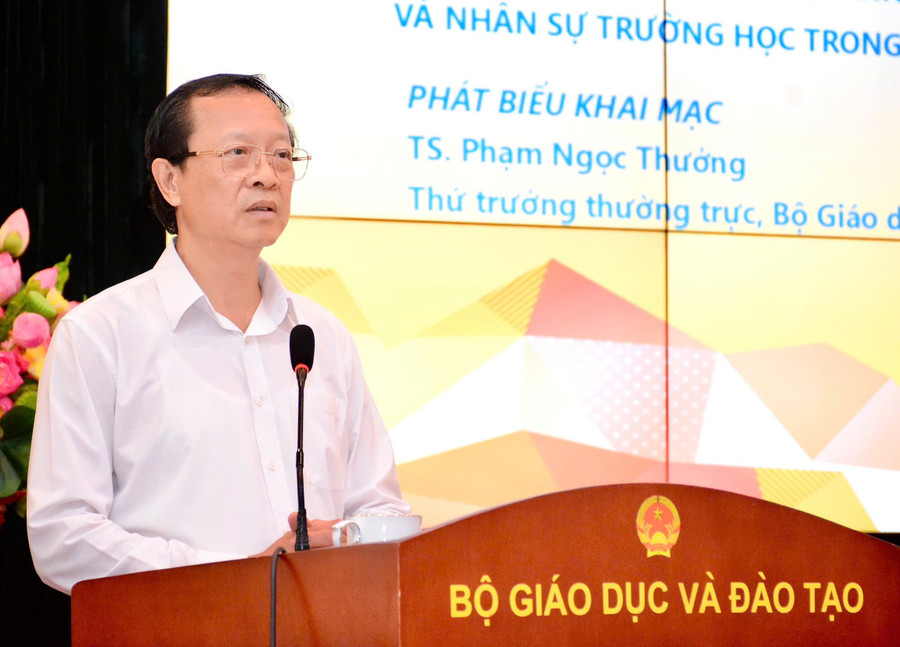
Therefore, the Deputy Minister requested that those who draft guidance documents must still approach them on the basis of fully adhering to legal grounds, political, scientific and practical viewpoints, and with the highest sense of responsibility, work in the most scientific and practical manner.
Above all, it requires a spirit of receptiveness and listening. Whether it is a circular or a decree, it must still meet the highest point of view: developing the teaching staff, building a teaching staff that ensures structure and meets quality requirements.
Thereby, meeting the new requirements of the country, building a generation of students with enough capacity and stature to enter the new era, the era of the country's rise.
“With the difficulties, challenges and high requirements while the time is limited, we need to have a scientific approach” – the Deputy Minister emphasized and suggested that one of the effective ways is to organize conferences and seminars to consult domestic and international experts to listen to and synthesize opinions and on the basis of closely following the viewpoints of the Law on Teachers.
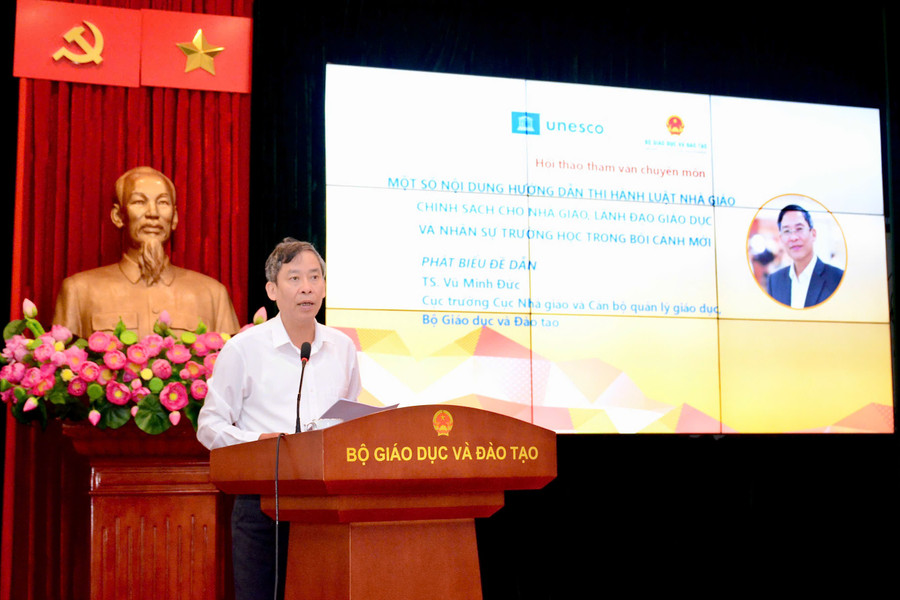
Receiving the opinions of domestic and international experts and scientists, Mr. Vu Minh Duc, Director of the Department of Teachers and Educational Managers (Ministry of Education and Training) acknowledged the dedicated, responsible and in-depth opinions. Thereby, contributing to the development of documents guiding the implementation of the Law on Teachers.
After the workshop, Mr. Vu Minh Duc hopes to continue receiving comments from experts, scientists, and international organizations in the process of compiling documents guiding the implementation of the Law on Teachers.
To ensure the effective implementation of the Law on Teachers from January 1, 2026, the Director of the Department of Teachers and Educational Managers said that the Ministry of Education and Training will advise and submit to the Government to issue 3 Decrees and issue 12 Circulars under its authority.
Of which, 3 Decrees include: Decree detailing a number of articles of the Law on Teachers, Decree stipulating salary policy, allowance regime, support and attraction policies for teachers, Decree stipulating preferential allowance regime according to profession for civil servants in the Education sector; 12 Circulars stipulating professional standards, working regime, recruitment authority, equivalent titles, and code of conduct for teachers.
“Faced with new requirements on breakthrough policies for science, technology development, innovation and digital transformation; orientations on educational and training breakthroughs in the coming time... requires the content of regulations in documents guiding the implementation of the Law on Teachers to be revolutionary, outstanding, and ahead of the development trends of the times in the new era” – Mr. Vu Minh Duc emphasized.
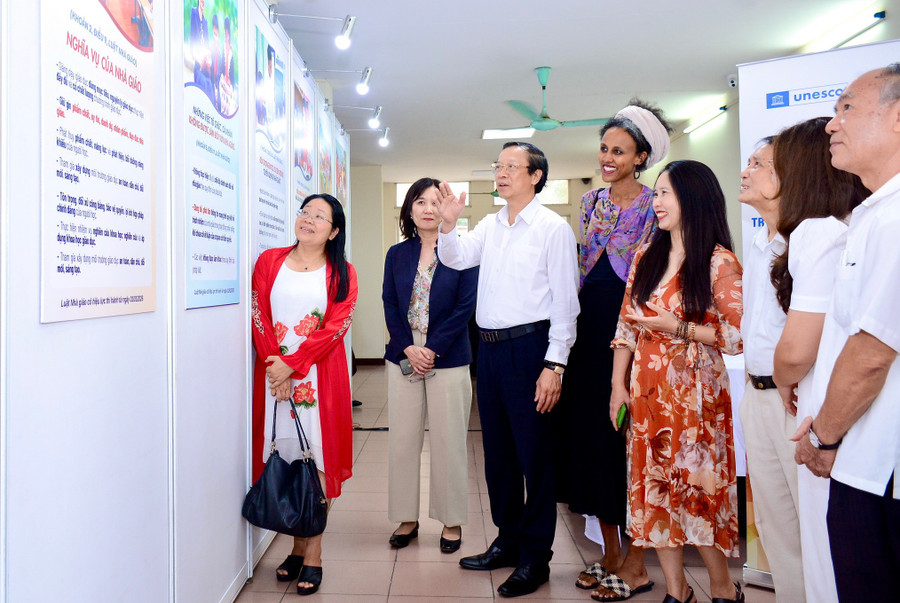
Emphasizing 5 notable highlights in the provisions of the Law on Teachers, Mr. Vu Minh Duc said, First, affirming the position, protecting the honor and prestige of the teaching profession. Second, teachers' salaries are ranked highest in the administrative career salary scale system. Third, some policies on better treatment, support, and attraction for teachers. Fourth, standardizing and developing the team - improving the quality of education. Fifth, increasing autonomy for educational institutions and giving initiative to the education sector.
Source: https://giaoducthoidai.vn/bao-dam-hieu-luc-thi-hanh-cua-luat-nha-giao-ke-tu-ngay-112026-post740211.html








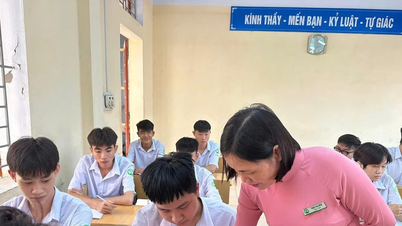


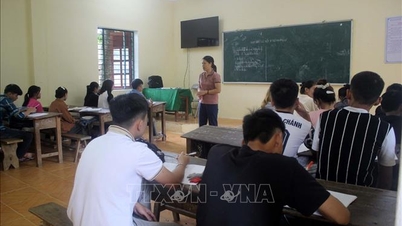

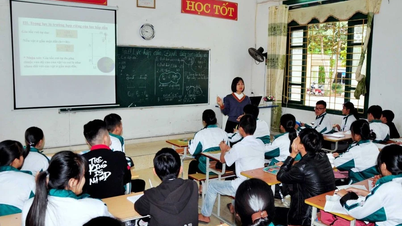
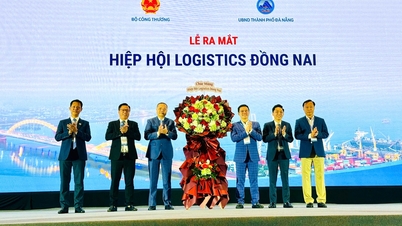







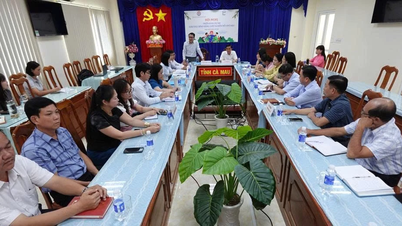

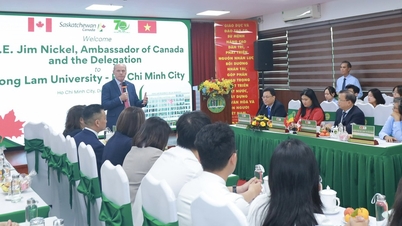










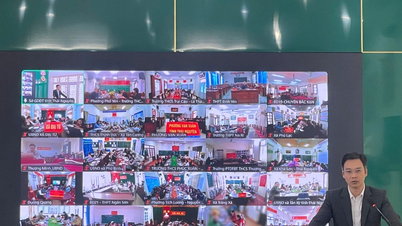

![[Photo] Worshiping the Tuyet Son statue - a nearly 400-year-old treasure at Keo Pagoda](/_next/image?url=https%3A%2F%2Fvphoto.vietnam.vn%2Fthumb%2F1200x675%2Fvietnam%2Fresource%2FIMAGE%2F2025%2F12%2F02%2F1764679323086_ndo_br_tempimageomw0hi-4884-jpg.webp&w=3840&q=75)
![[Photo] Parade to celebrate the 50th anniversary of Laos' National Day](/_next/image?url=https%3A%2F%2Fvphoto.vietnam.vn%2Fthumb%2F1200x675%2Fvietnam%2Fresource%2FIMAGE%2F2025%2F12%2F02%2F1764691918289_ndo_br_0-jpg.webp&w=3840&q=75)






















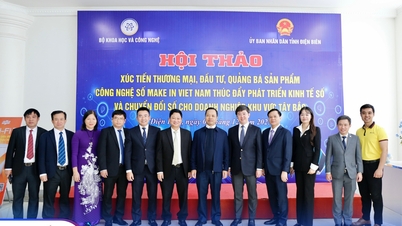
























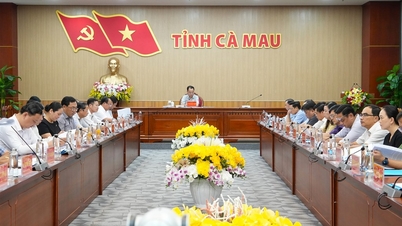

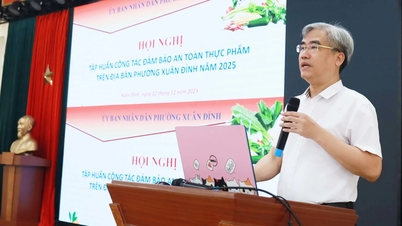




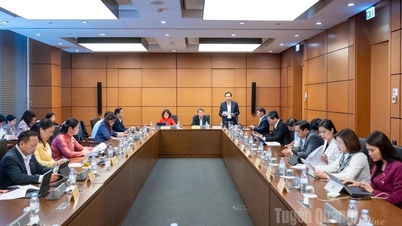















Comment (0)